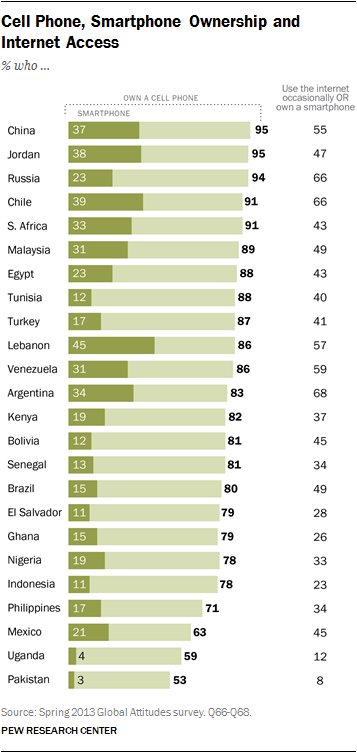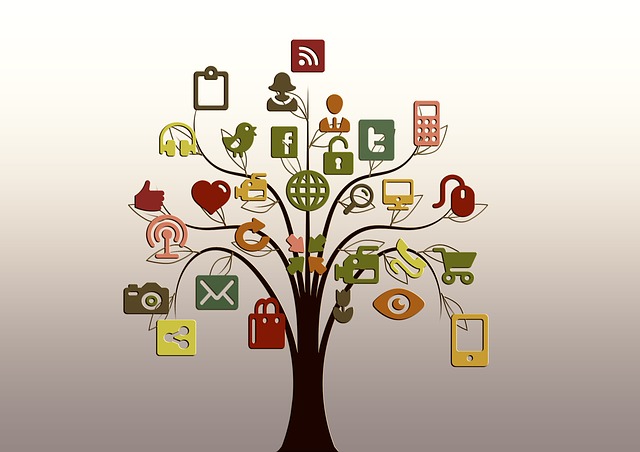
Pew Research have just released a new report detailing how emerging nations are embracing the internet — particularly through mobile technology. This is a rich, deep and fascinating report that focuses on 24 nations ranging from China where 95% of the population own a cell phone to Pakistan where cell phone ownership stands at 53%.
We know that about 40% of the world use the internet, and unsurprisingly those who use it most are in developed countries. But the rest of the world is rapidly embracing technology too. Across the surveyed countries only 20% of people said they have a landline at home. Many people have skipped landlines and gone straight to using mobile technology. Using Kenya as an example we can see that only 1% of people have a landline, but almost 70% use mobile phones for financial transactions.
The survey covers how people around the world are using their mobile phones for an increasing variety of purposes: texting, taking photos, finding information, making payments.
The report delves into some fascinating insights. We’ve seen it in the news countless times over the past couple of years, but evidently one of the biggest impacts of technology is in the increased flow of information and ideas. For example 75% of people in Venezuela said that social networking had revealed something new about their political beliefs.
Two of the projects that I'm leading at the moment are ambitious multimedia digital projects that are seeking to make an impact in developing countries where the range of available technology and access to the internet is far more limited than in the West. But how that is changing! These projects are very different from each other, but both incorporating a vision that is backed up by this research.
The interactive graphic below from the Pew Global website is a very neat way of browsing some of the data.


